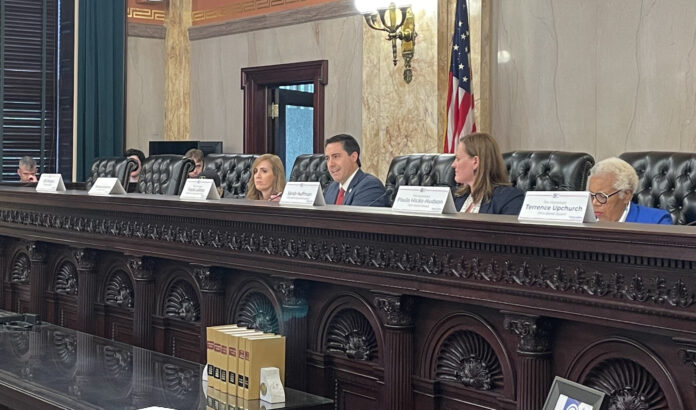A significant breakthrough has seen the U.S. Supreme Court pave the way for an Ohio constitutional amendment that would effectively abolish qualified immunity for police officers. The ruling followed a two-year court battle between citizen organizers and Ohio Attorney General Dave Yost.
The court’s short decision denied Yost’s motion to stay a lower court’s order, essentially permitting the proposed amendment to proceed in the process. This amendment, if enacted, would simplify the ability of citizens to sue police officers accused of abusing constitutional rights. Let’s discuss the issue in detail.
What Is Qualified Immunity?
Qualified immunity is a judicial protection commonly employed by police officers in civil suits. It shields them from personal liability unless it can be shown that they broke “clearly established” law. Critics say this protection makes it almost impossible for victims of abuse to pursue justice.
The so-called Protecting Ohioans’ Constitutional Rights proposed amendment seeks to strip that shield under Ohio law. It would make it easier for civil lawsuits against police officers to move forward in state courts if passed.
Also read: Judge Hannah Dugan Arrested in Federal Immigration Obstruction Case
Attorney General Yost’s Role and Objections
Ohio Attorney General Dave Yost long opposed the summary language of the proposed Protecting Ohioans’ Constitutional Rights amendment. He repeatedly denied certification in March 2023, saying the language wasn’t “fair and truthful.”
But U.S. District Judge James Graham condemned Yost’s persistent denials. He branded Yost as an “antagonistic copywriter” instead of a neutral legal official. Graham stated that the attorney general required an unreasonable degree of “hyper-correctness” at the expense of undermining citizens’ right to put forward ballot initiatives.
Both Graham and the Sixth Circuit Court of Appeals concluded that Yost’s actions most probably contravened the First Amendment, preventing citizens from petitioning their government.
Supreme Court Ruling Brings Delay to an End
With the ruling from the Supreme Court, Yost certified the summary language as required by the order of the district court. In a press release, his office confirmed that they would now proceed with the General Assembly to clarify the law on ballot initiatives and to safeguard free speech as well as election integrity.
A spokesperson further added, “There must be clarity on what the law actually is concerning the First Amendment. It’s critical to safeguard ballot access and ballot integrity simultaneously.”
Next Step: Ballot Board Review
With Yost having certified the summary, the Ohio Ballot Board now has to determine if the proposal addresses a single subject that is the requirement for citizen-initiated amendments. That review is set for Tuesday, April 29, at noon.
If approved by the board, the petition’s organizers can start gathering signatures. They’ll require over 413,000 signatures to make it to the statewide ballot.
Why This Matters
This amendment would have severe consequences for how Ohio addresses complaints of police abuse. Without qualified immunity, officers facing claims of violating rights might see more civil lawsuits and possibly alter the dynamics of law enforcement interactions with citizens.
Advocates hope this will enhance accountability. Critics, though, caution that stripping qualified immunity may open the floodgates to lawsuits that could damage officer morale and also the method of recruitment.
A Victory for Citizen Activism
The decision is a victory for Ohioans who are advocating for increased government transparency and accountability in the area. Two years of court delays later, they finally get to pursue their campaign.
As the April 29 Ballot Board meeting nears, the nation will be watching Ohio to determine if the push for police accountability reaches the 2025 ballot.
This is a breaking story. Stay tuned as the process continues to develop.








